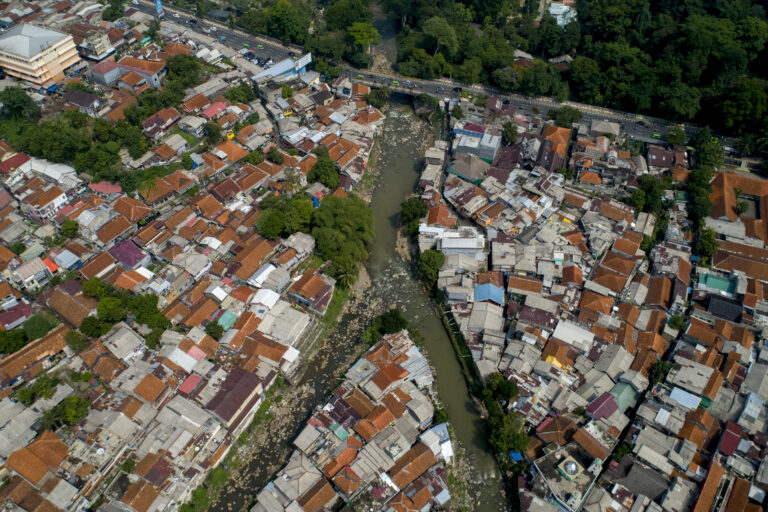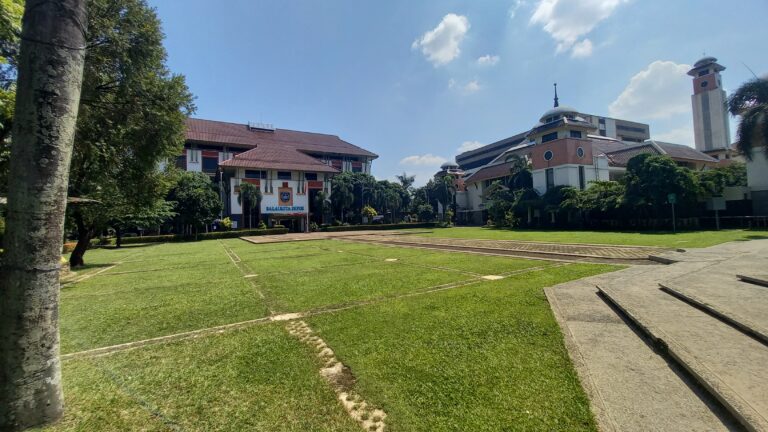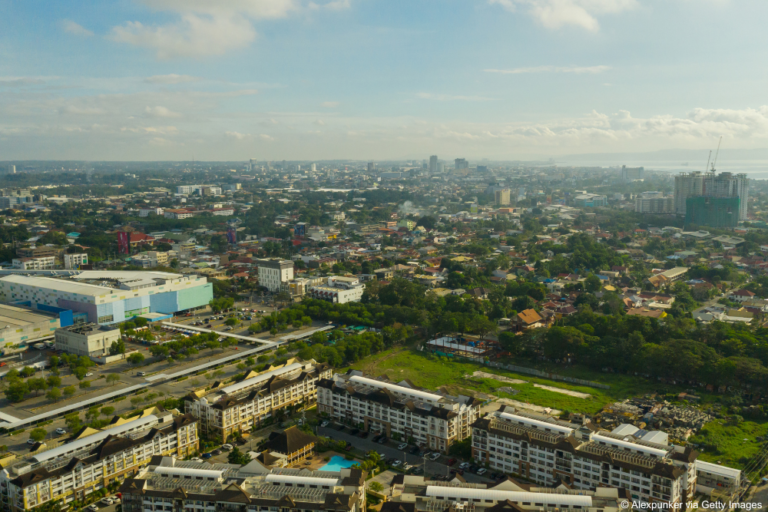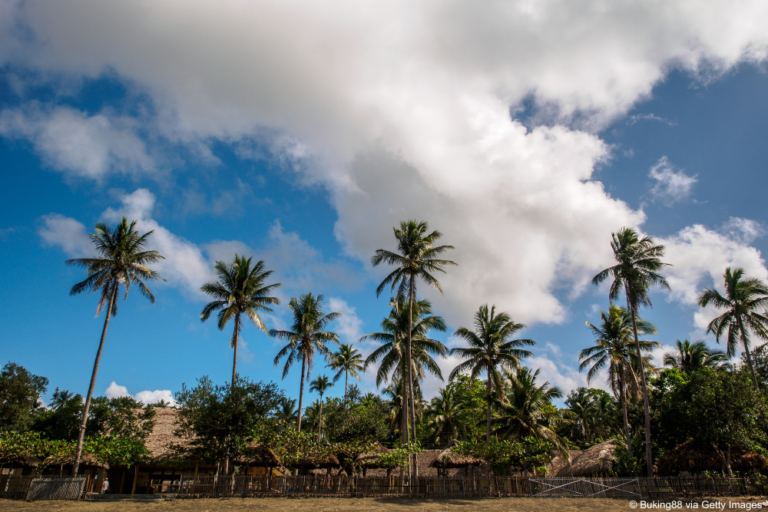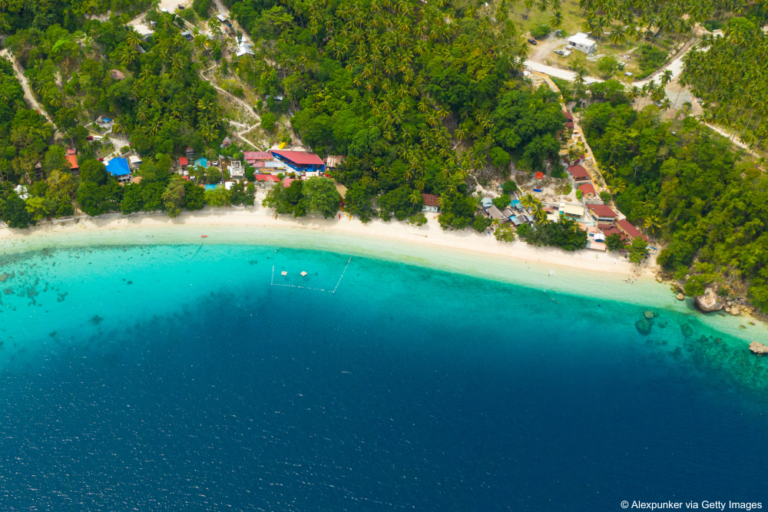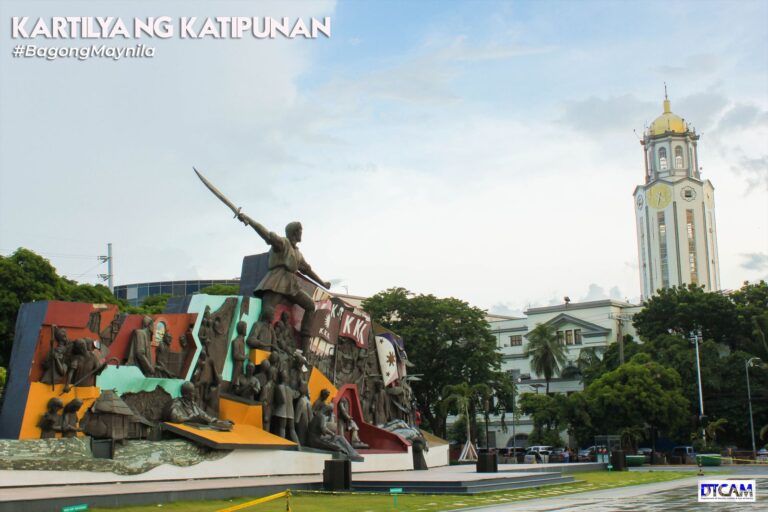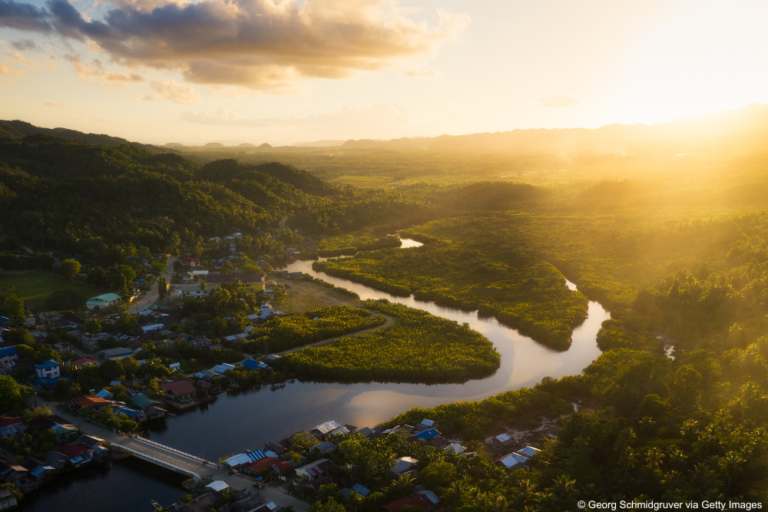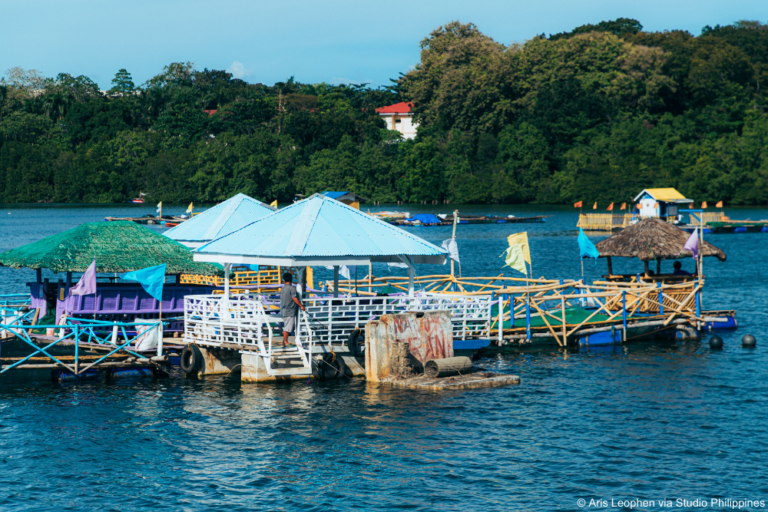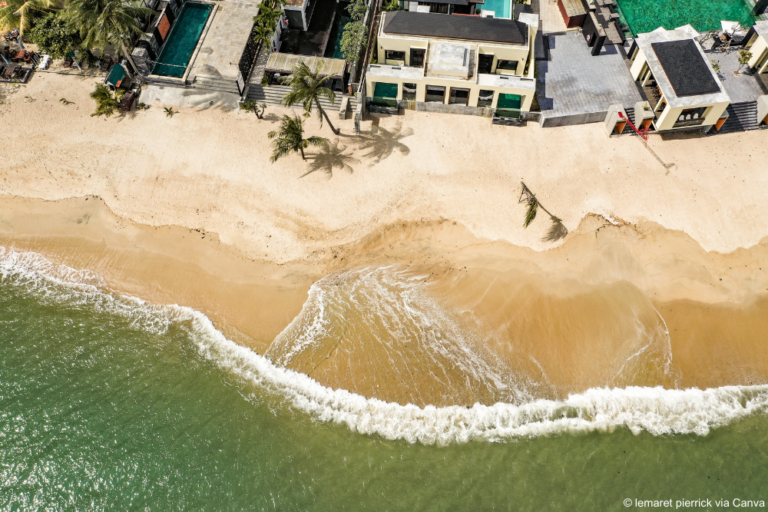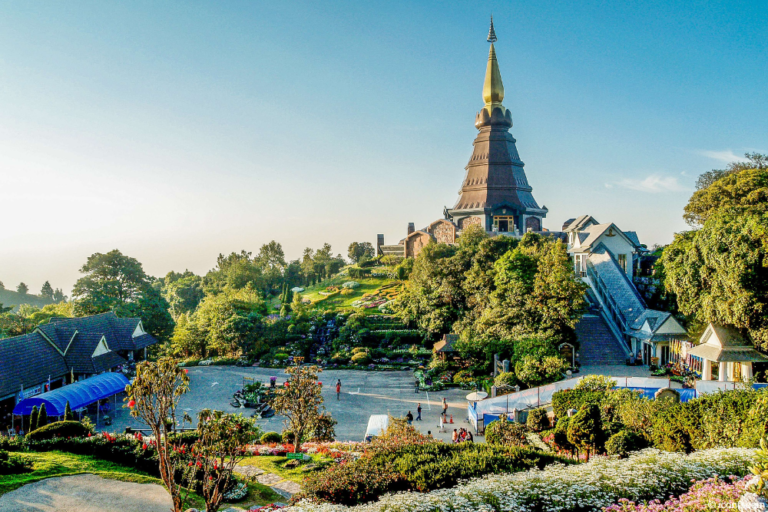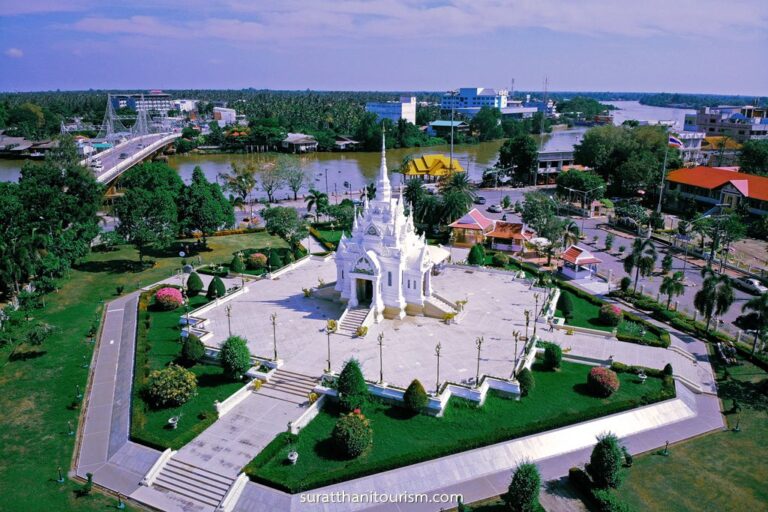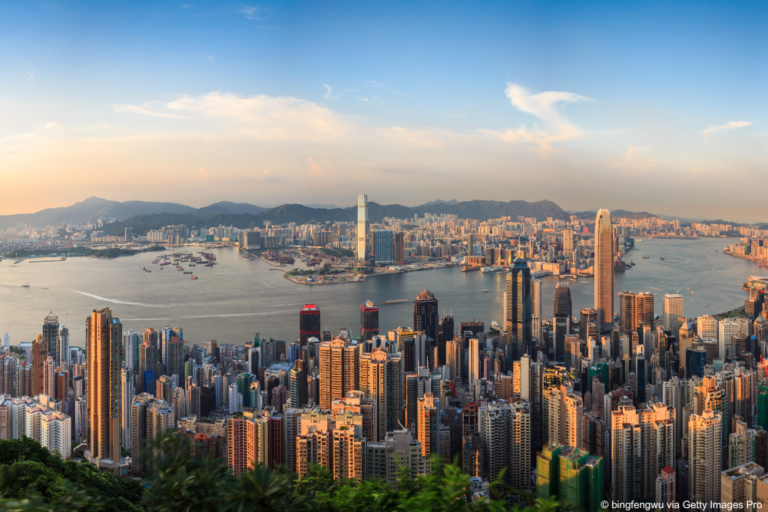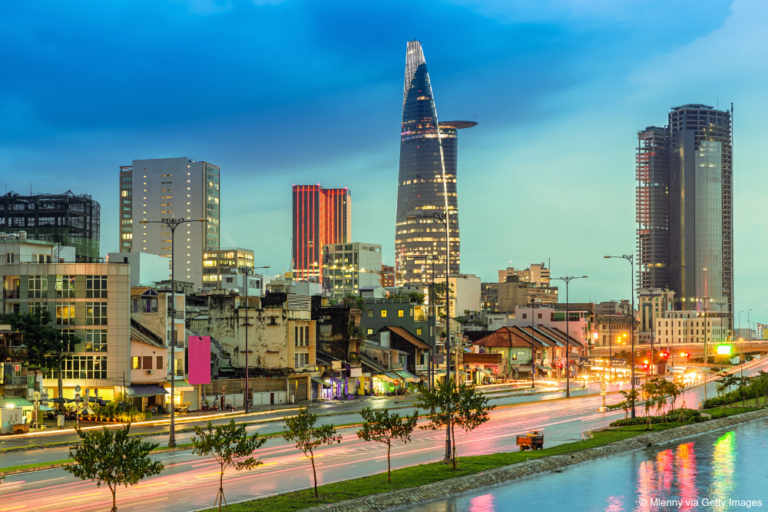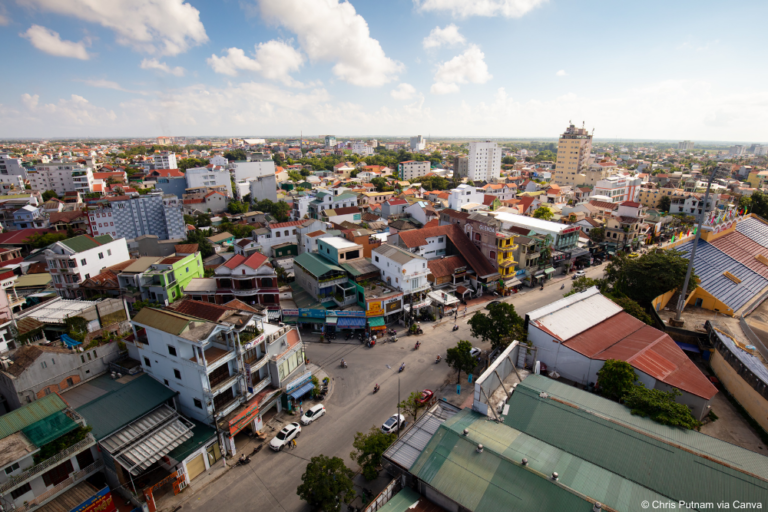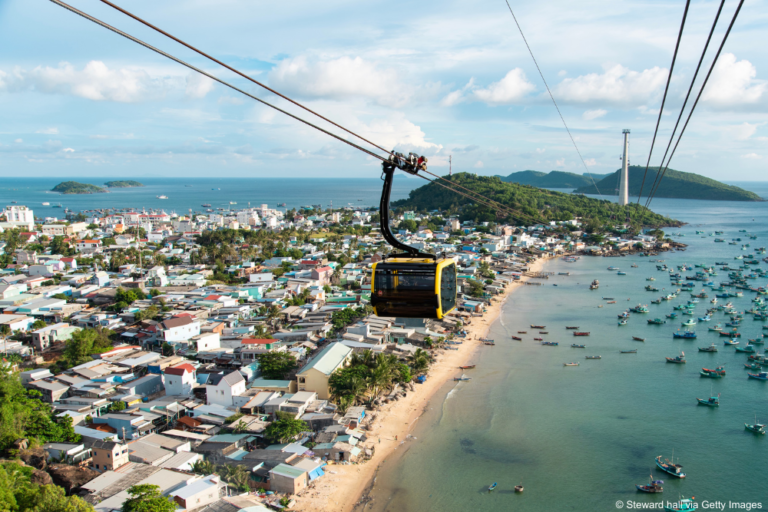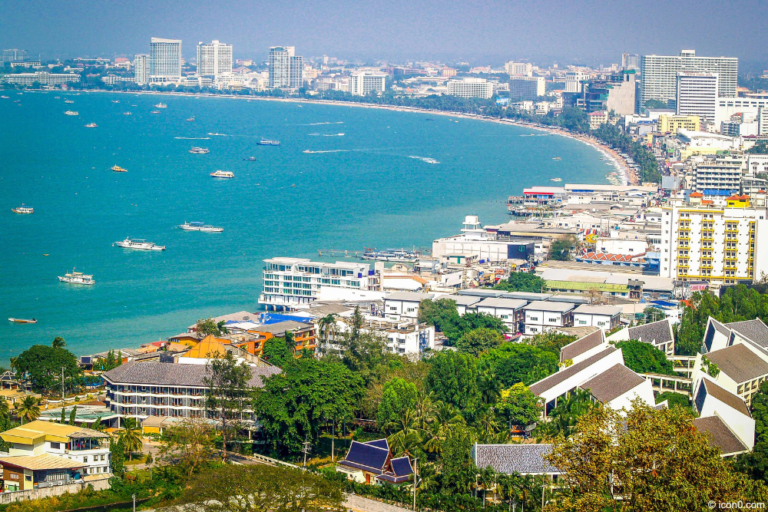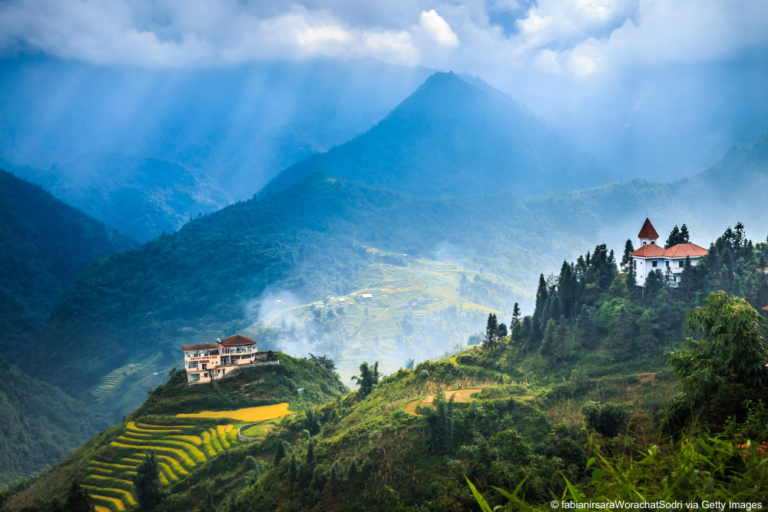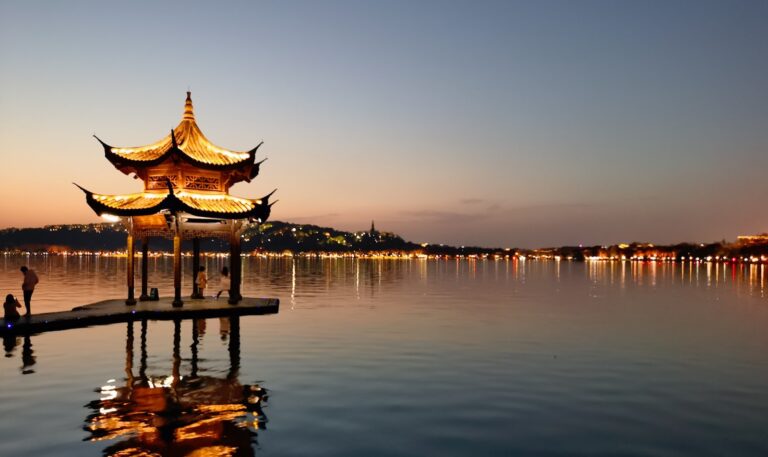The city of Depok started from a sub-district located in the Kawedanan (Assistant Regent) area of the Parung area, Bogor Regency. In 1976 housing began to be built by both Perum Perumnas and developers, which was then followed by the construction of the University of Indonesia (UI) campus, as well as increasing trade and services that were increasingly rapidly so that service speed was needed.
With an area of about 200.29 km², Depok is a low-lying area with an altitude of 77-150 meters above sea level and a slope of less than 15%. The population in Depok City based on the population in 2019 was 2,406,826 people, consisting of 1,210,887 males and 195,939 females. The population density in 11 sub-districts varies with the highest population density in Sukmajaya District, which is 18,536 people/sq km and the lowest in Sawangan District, which is 6,532 people/sq km.
Depok is traversed by major rivers, namely the Ciliwung River and the Pesanggrahan River. In addition, there are also 13 sub-units of watersheds and 22 lakes or lakes. Depok City, apart from being the Government Center directly adjacent to the Special Capital Region of Jakarta, is also a buffer zone for the State Capital which is directed to residential cities, educational cities, trade and service centers, tourism cities and as water catchment cities.
Depok City supports the mission of the PSC program with concrete action at the city level.
The city of Depok started from a sub-district located in the Kawedanan (Assistant Regent) area of the Parung area, Bogor Regency. In 1976 housing began to be built by both Perum Perumnas and developers, which was then followed by the construction of the University of Indonesia (UI) campus, as well as increasing trade and services that were increasingly rapidly so that service speed was needed.
With an area of about 200.29 km², Depok is a low-lying area with an altitude of 77-150 meters above sea level and a slope of less than 15%. The population in Depok City based on the population in 2019 was 2,406,826 people, consisting of 1,210,887 males and 195,939 females. The population density in 11 sub-districts varies with the highest population density in Sukmajaya District, which is 18,536 people/sq km and the lowest in Sawangan District, which is 6,532 people/sq km.
Depok is traversed by major rivers, namely the Ciliwung River and the Pesanggrahan River. In addition, there are also 13 sub-units of watersheds and 22 lakes or lakes. Depok City, apart from being the Government Center directly adjacent to the Special Capital Region of Jakarta, is also a buffer zone for the State Capital which is directed to residential cities, educational cities, trade and service centers, tourism cities and as water catchment cities.
Depok City supports the mission of the PSC program with concrete action at the city level.
The Wangi Bumi Nusantara Foundation was initiated by the Depok City Government. They assist the Waste Banks in Depok City which have more than 100 waste banks and many of these waste banks are not operated. With the collaboration between WWF Plastic Smart Cities and the Depok City Local Government, since 2022, the Wangi Bumi Nusantara Foundation opened 7 new waste banks and there were around 20-40 reactivated waste banks in 3 sub-districts in Depok City. Their activities include conducting training for waste banks, increasing the management capacity of waste banks, and creating waste banks entrepreneurs in their business.
The Wangi Bumi Nusantara Foundation also encourages digitization of waste recording and weighing through the www.pilahin.com application and develops a website Wangi Bumi Nusantara to become a marketplace for products that were produced by the waste bank they assist. All these activities are carried out under the Sahabat Sadayana (Sadayana = Sampah Berdaya Guna or Efficiently Useful Waste) program which has 21 volunteers assisting the newly established waste bank and other reactivated waste banks.
The Annisa Waste Bank is a unit waste bank and initially only had the activities of collecting, weighing, and sorting inorganic waste. Through WWF Plastic Smart Cities, they plan to upcycle and recycle plastic waste into valuable products using plastic waste management technologies such as extruders, injections, etc.
They also expanded the area from 1 RW now to 3 RWs in the Pelni Complex, Depok. They also work with Elementary Schools to manage the waste the school produces. By joining Plastic Smart Cities, they want to become a waste bank that is more independent and can manage waste in a circular economy.
Links related:
- Depok City itself has a special waste management system, such as the Waste Management Unit (UPS) which is used to manage organic waste. In addition, there are also waste banks, and collectors as the informal sector in the waste chain cycle, especially for inorganic waste that can be recycled.
- Depok City is the front line in Indonesia to protect the environment from waste problems. Following Jakarta’s “Clean & Green” campaign targeting the capital city and its surroundings in 2012, the city government of Depok decided to concentrate its resources on sorting waste by created a system called the Ember Party, which includes new regulations to encourage and compel residents to separate their household waste into streams of organic (i.e. food waste), inorganic (i.e. recyclable) and residue materials (The Jakarta Post, 2017)
- For infrastructure for handling waste in Depok City, it is managed at a Temporary Disposal Site (TPS) through a regional-scale waste management unit (UPS) and sorting organic and inorganic waste. Organic waste is processed into compost, while inorganic waste is processed into recycled products.
- The concept of waste management is an integrated waste management concept that has changed the Depok City Medium-Term Development Plan 2016-2021.
- The Depok City Government combines the eco-friendly concept with regional-scale handling. Depok City has a number of waste processing facilities in the form of a Waste Bank Unit (BSU) and a Waste Processing Unit (UPS) to improve waste services so that they can be handled.
- Depok City Government is committed to encourage the growth of waste banks at the hamlets level in each district, build a learning centre, and the education program.
- Depok City planned to develop a community-based waste management. It is also committed reducing its plastic waste by 30% or as much as 3,458 metric tons.
- Presidential Regulation Number 97 of 2017 on National Policy and Strategy with the waste management target to be achieved is 100% of waste properly and properly managed in 2025 as measured by waste reduction by 30%, and waste handling by 70% by 2025.
- It is targeted that in 2025 all waste is managed with waste reduction activities reaching 30% and waste handling reaching 70%. A physical program to improve waste management in the form of a target of adding a waste bank of 1 unit/year. In addition, there is also a program to strengthen the commitment of the business community through the implementation of producer obligations in reducing waste (extended producer responsibility (EPR).
Playlist
Explore More Cities
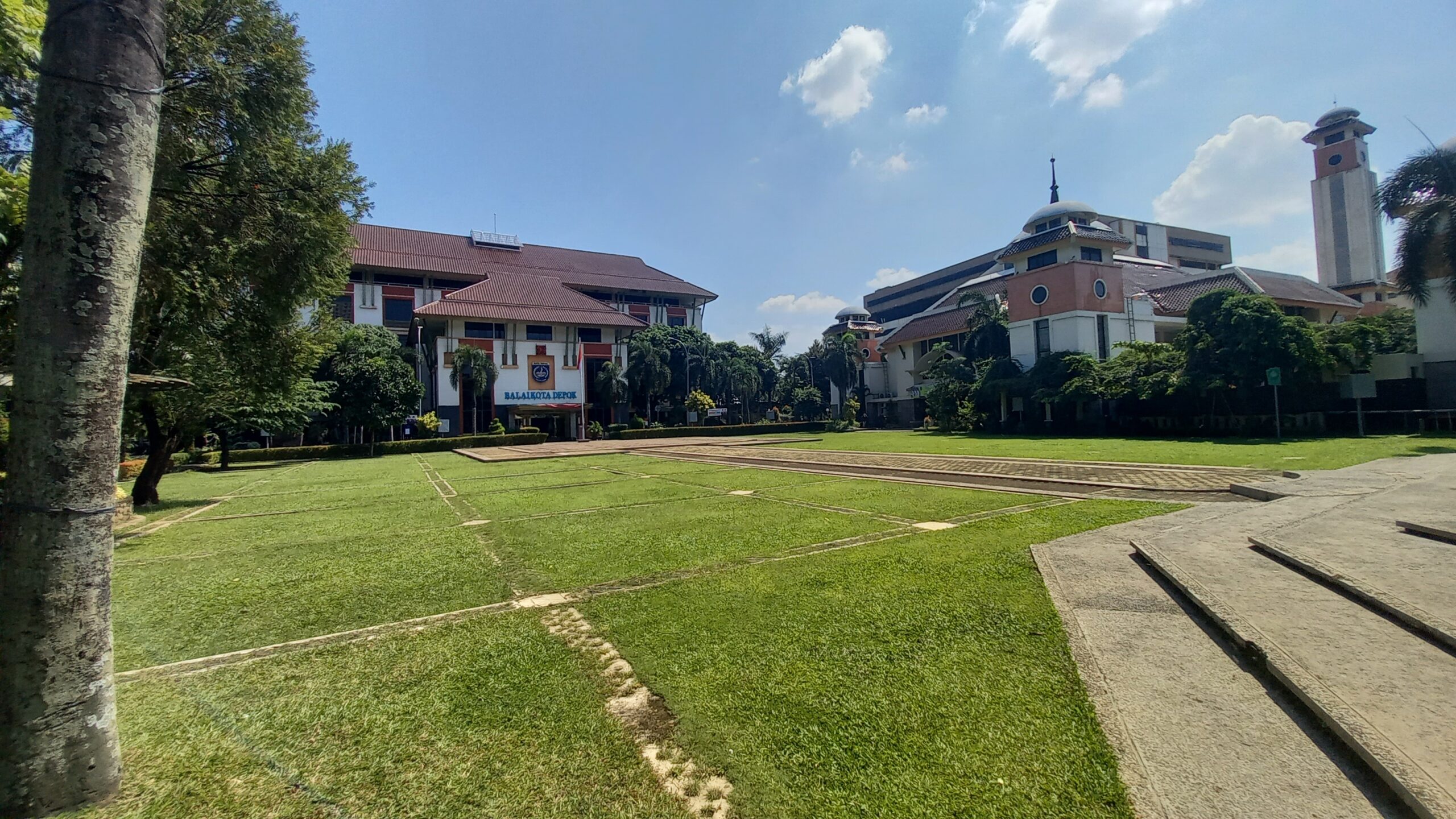
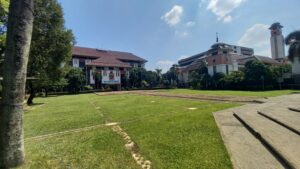 | CITY : Depok City |
The city of Depok started from a sub-district located in the Kawedanan (Assistant Regent) area of the Parung area, Bogor Regency. In 1976 housing began to be built by both Perum Perumnas and developers, which was then followed by the construction of the University of Indonesia (UI) campus, as well as increasing trade and services that were increasingly rapidly so that service speed was needed.
With an area of about 200.29 km², Depok is a low-lying area with an altitude of 77-150 meters above sea level and a slope of less than 15%. The population in Depok City based on the population in 2019 was 2,406,826 people, consisting of 1,210,887 males and 195,939 females. The population density in 11 sub-districts varies with the highest population density in Sukmajaya District, which is 18,536 people/sq km and the lowest in Sawangan District, which is 6,532 people/sq km.
Depok is traversed by major rivers, namely the Ciliwung River and the Pesanggrahan River. In addition, there are also 13 sub-units of watersheds and 22 lakes or lakes. Depok City, apart from being the Government Center directly adjacent to the Special Capital Region of Jakarta, is also a buffer zone for the State Capital which is directed to residential cities, educational cities, trade and service centers, tourism cities and as water catchment cities.
Depok City supports the mission of the PSC program with concrete action at the city level.
- Depok City itself has a special waste management system, such as the Waste Management Unit (UPS) which is used to manage organic waste. In addition, there are also waste banks, and collectors as the informal sector in the waste chain cycle, especially for inorganic waste that can be recycled.
- Depok City is the front line in Indonesia to protect the environment from waste problems. Following Jakarta's “Clean & Green” campaign targeting the capital city and its surroundings in 2012, the city government of Depok decided to concentrate its resources on sorting waste by created a system called the Ember Party, which includes new regulations to encourage and compel residents to separate their household waste into streams of organic (i.e. food waste), inorganic (i.e. recyclable) and residue materials (The Jakarta Post, 2017)
- For infrastructure for handling waste in Depok City, it is managed at a Temporary Disposal Site (TPS) through a regional-scale waste management unit (UPS) and sorting organic and inorganic waste. Organic waste is processed into compost, while inorganic waste is processed into recycled products.
- The concept of waste management is an integrated waste management concept that has changed the Depok City Medium-Term Development Plan 2016-2021.
- The Depok City Government combines the eco-friendly concept with regional-scale handling. Depok City has a number of waste processing facilities in the form of a Waste Bank Unit (BSU) and a Waste Processing Unit (UPS) to improve waste services so that they can be handled.
- Depok City Government is committed to encourage the growth of waste banks at the hamlets level in each district, build a learning centre, and the education program.
- Depok City planned to develop a community-based waste management. It is also committed reducing its plastic waste by 30% or as much as 3,458 metric tons.
- Presidential Regulation Number 97 of 2017 on National Policy and Strategy with the waste management target to be achieved is 100% of waste properly and properly managed in 2025 as measured by waste reduction by 30%, and waste handling by 70% by 2025.
- It is targeted that in 2025 all waste is managed with waste reduction activities reaching 30% and waste handling reaching 70%. A physical program to improve waste management in the form of a target of adding a waste bank of 1 unit/year. In addition, there is also a program to strengthen the commitment of the business community through the implementation of producer obligations in reducing waste (extended producer responsibility (EPR).
Wangi Bumi Nusantara Foundation
The Wangi Bumi Nusantara Foundation was initiated by the Depok City Government. They assist the Waste Banks in Depok City which have more than 100 waste banks and many of these waste banks are not operated. With the collaboration between WWF Plastic Smart Cities and the Depok City Local Government, since 2022, the Wangi Bumi Nusantara Foundation opened 7 new waste banks and there were around 20-40 reactivated waste banks in 3 sub-districts in Depok City. Their activities include conducting training for waste banks, increasing the management capacity of waste banks, and creating waste banks entrepreneurs in their business.
The Wangi Bumi Nusantara Foundation also encourages digitization of waste recording and weighing through the www.pilahin.com application and develops a website http://www.wangibuminusantara.org/ to become a marketplace for products that were produced by the waste bank they assist. All these activities are carried out under the Sahabat Sadayana (Sadayana = Sampah Berdaya Guna or Efficiently Useful Waste) program which has 21 volunteers assisting the newly established waste bank and other reactivated waste banks.
Annisa Waste Bank
The Annisa Waste Bank is a unit waste bank and initially only had the activities of collecting, weighing, and sorting inorganic waste. Through WWF Plastic Smart Cities, they plan to upcycle and recycle plastic waste into valuable products using plastic waste management technologies such as extruders, injections, etc.
They also expanded the area from 1 RW now to 3 RWs in the Pelni Complex, Depok. They also work with Elementary Schools to manage the waste the school produces. By joining Plastic Smart Cities, they want to become a waste bank that is more independent and can manage waste in a circular economy.
Links related:
DEPOK
Depok supports the mission of the PSC program with concrete action at the city level.
Explore other Plastic Smart Cities


Geocoding Error Occured.
Tried to Geocode:
Error Type:
Please be sure to follow the tutorial on how to setup the Google APIs required for the Advanced Google Map Widget.
Google Map API Key Tutorial
